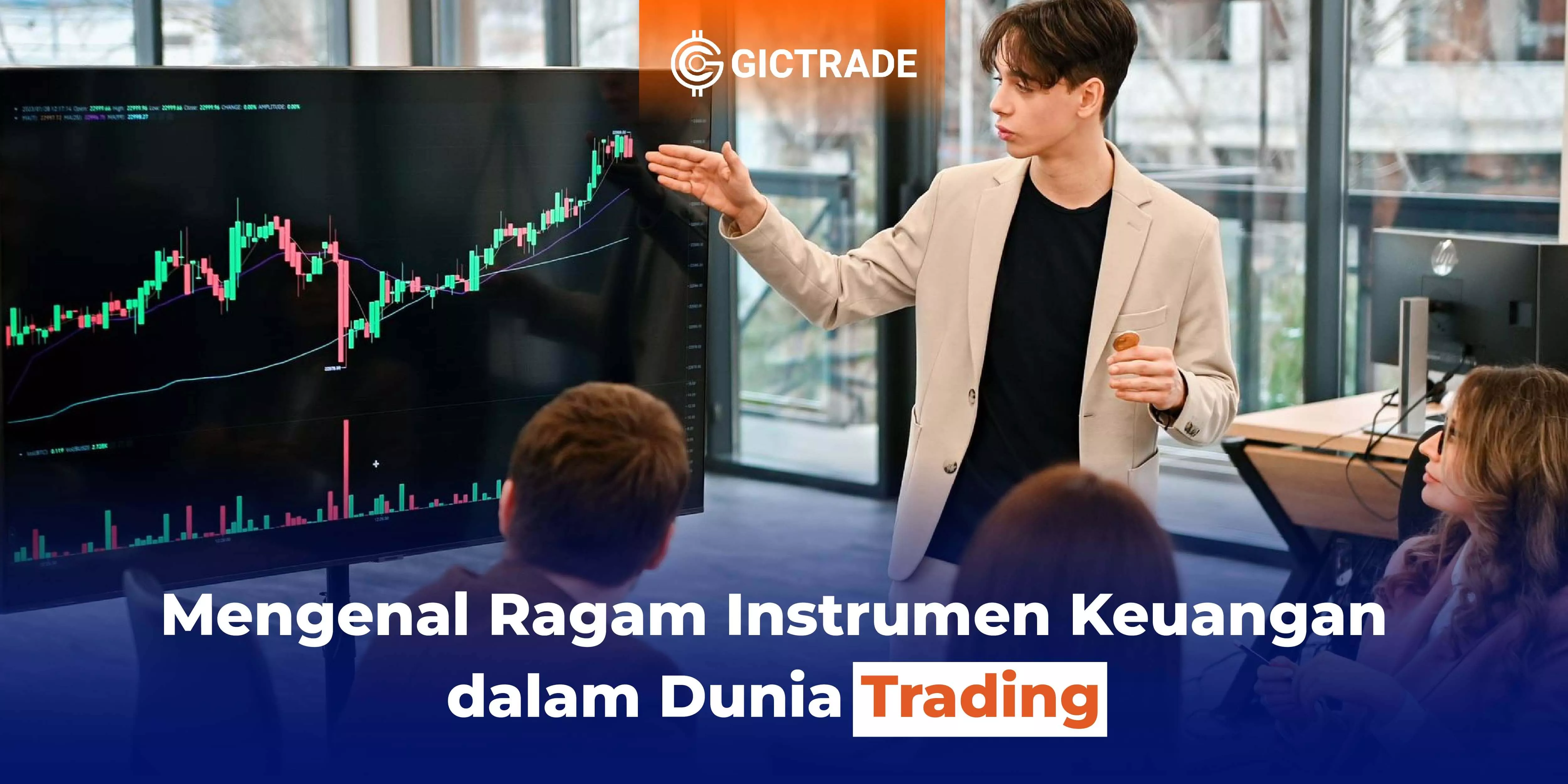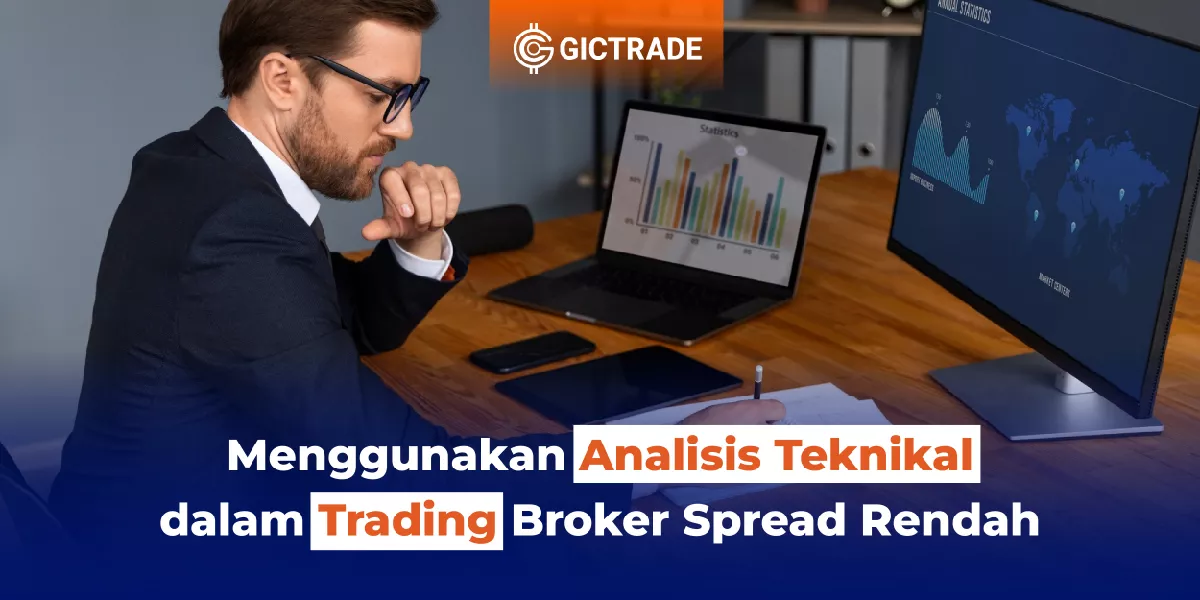Table of Contents
Understanding the Variety of Financial Instruments in the Trading World
Trading refers to the process of buying and selling financial assets with the aim of profiting from the price changes of those assets. Financial instruments are assets that can be traded in financial markets.
-1.webp)
There are many types of financial instruments you can choose to trade, each with different characteristics and risks. Here are some commonly traded financial instruments in the world of trading:
1. Stocks
Stocks are a share of ownership in a company. By purchasing stocks, you own a portion of that company. Stock prices are influenced by the company's financial performance and market conditions. Profit from stocks can be obtained through capital gains (the difference between selling and buying prices) as well as dividends distributed by the company.
2. Currencies (Forex)
Currency trading or forex involves buying and selling currency pairs. Currency exchange rates can be influenced by various economic and geopolitical factors. Profit in forex trading is obtained from the differences in currency exchange rates.
Looking for the Best Forex Trading Platform for Beginners? Join GICTrade Now!
Not familiar with GIC? Let’s get acquainted. Unlike other conventional brokerage firms, GIC, through the GICTrade platform, provides solutions for traders who do not want to be burdened by high trading costs. GICTrade is a peer-to-peer trading platform that connects traders and market makers.
So, what’s special about GICTrade? As a platform that connects traders and market makers, you as a prospective client can choose between the two, whether to be a trader or a market maker.
GICTrade’s role as a transaction provider can minimize costs and help maximize profits for both traders and market makers while creating a fair trading atmosphere and results.
Traders benefit from the absence of commission and swap fees, as well as low spreads due to the presence of market makers as liquidity providers. You can also join the GICtrade trader community on Telegram to ask fellow traders about their trading experiences.
Follow GIC on Instagram for information on webinars and various attractive prizes. Additionally, on GIC's YouTube channel, traders can also learn trading for free! What are you waiting for? With features that fully support you to start investing and trading forex through GIC, make transactions simpler, safer, and more profitable.
3. Commodities
Commodities are raw goods such as oil, gold, and wheat. Commodity prices are influenced by global supply and demand as well as factors such as weather and production. Trading commodities can serve as a hedge against price fluctuations.
4. Stock Indices
A stock index measures the performance of a group of stocks that represent a specific sector or market. An example is the S&P 500, which reflects the 500 largest stocks in the U.S. stock market. Trading stock indices allows for diversification of investments in a particular sector.
5. Bonds
Bonds are debt securities issued by governments or corporations. In bond trading, you lend money to the bond issuer in exchange for fixed interest payments. Bonds are considered to be lower-risk instruments compared to stocks.
6. Cryptocurrencies
Cryptocurrencies like Bitcoin and Ethereum are digital currencies that use blockchain technology. Cryptocurrency prices are highly volatile and are influenced by market adoption and related news.
Benefits and Risks in Trading Financial Instruments
Each financial instrument has its own advantages and risks. It’s essential to understand the characteristics of each instrument before deciding to trade. Here are some benefits and risks you should consider:
Benefits
- Potential for Significant Profits: Trading can yield substantial profits when done wisely. Some instruments, such as innovative technology stocks or popular cryptocurrencies, have high growth potential.
- Portfolio Diversification: Various financial instruments allow for the diversification of your investments. Diversification can help reduce risk and protect your portfolio from specific market fluctuations.
- Ease of Access: In the digital age, access to financial markets has become easier. You can trade online through trading platforms provided by brokers.
Risks
- Financial Losses: Trading also involves the risk of financial losses. Price changes that do not go as expected can lead to significant losses.
- Market Volatility: Financial markets tend to be volatile, especially in the short term. This can result in sudden price changes that are difficult to predict.
- Economic Uncertainty: Economic and geopolitical factors can affect the prices of financial instruments. Government decisions, political events, or global economic upheavals can impact asset values.
Common Questions About Trading Financial Instruments
What do I need to start trading?
You need access to a trading platform provided by a broker. Additionally, you should understand the basics of market analysis, risks, and trading strategies.
How much capital is needed to start?
The initial capital can vary depending on the instruments you choose and the broker’s requirements. Some brokers offer accounts with low initial capital, while certain instruments like stocks may require a larger investment.
How can I manage risks in trading?
You can manage risks by setting loss limits, diversifying your portfolio, and using protective tools such as stop-loss orders.
Do I need to learn market analysis?
Yes, understanding market analysis is essential. Technical and fundamental analysis helps you make more informed trading decisions.
Can trading be a primary source of income?
While some people successfully generate significant income through trading, it’s crucial to understand that trading also involves high risks. There are no guarantees of profits.
Is trading suitable for everyone?
Not everyone is suited for trading. Trading requires in-depth understanding, patience, and discipline. It’s important to consider your risk profile and knowledge before getting involved in trading.
Conclusion
Understanding the variety of financial instruments in the trading world is an important step in starting your trading journey. Each instrument has different characteristics and risks, and it is crucial to understand these aspects before engaging in trading. With good knowledge, discipline, and wise risk management, you can navigate your trading journey with greater confidence.
| Also Read: Unveiling the Secrets of Understanding the Basics of Trading |
 Last:
Last: 






